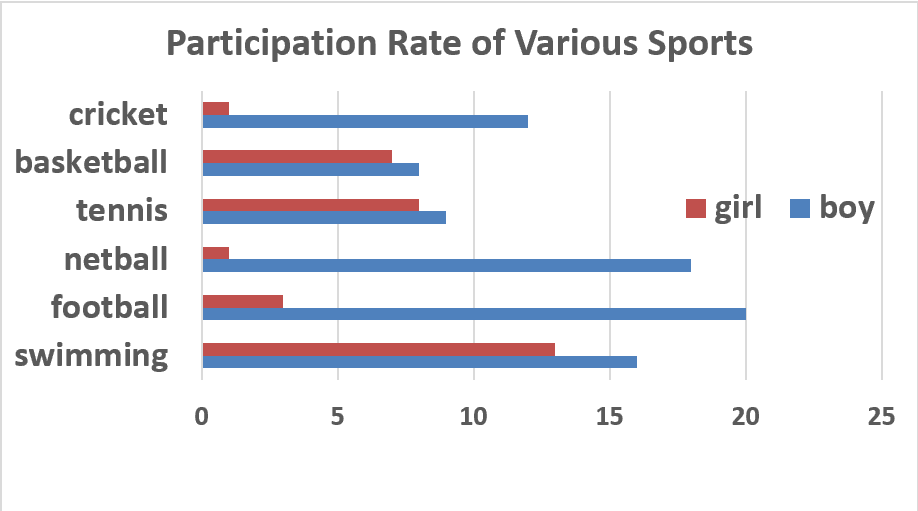许多考生写不好托福独立写作的主要原因都在于例证环节。考生在论证某个观点时无法给出具有说服力的例子,就会让自己的观点显得无力站不住脚,作文得分自然也会受到影响。下面小编就和大家分享托福独立写作如何提升论证说服力,来欣赏一下吧。
托福独立写作如何提升论证说服力
托福官方指南OG独立写作例子评分细节
首先小编先通过托福官方指南OG中给出的评分标准来为大家讲解一些独立写作对例子使用的一些要求。按照OG中的说法,独立写作从5分到2分这四个级别的评分级别对于例证也就是exemplification都是有所要求的。5分的要求是using clearly appropriate exemplifications,4分要求是appropriate and sufficient exemplifications,3分要求是somewhat developed exemplifications,2分要求是inappropriate or insufficient exemplifications。从满分到低分的评分标准中都对例证给出了明确要求,由此可见例证这一项要求对作文评分的重要性。而大家也可以看到appropriate是各项要求中出现次数最多的一个形容词。许多考生之所以例证方面被扣分,也正是由于举的例子不够合适恰当。
托福独立写作举例两条心得分享
那么考生应该如何给出appropriate的例子呢?小编认为大家在举例时需要注意这两点:
1. 多用群体性例子而非个人例子
这个要求可能和许多同学的想法完全相反。很多人觉得既然要举例,那自然应该尽可能多用名人事例,而这些东西在托福写作备考准备案例素材时也会大量背诵各类所谓的名人案例。这种思路在托福写作中其实并不符合当下要求。大家要知道,如今的托福独立写作中,涉及个人观点类的话题越来越少,而关系到社会现象的题目则在不断增加。也就是说,考生在举例时,运用名人事例来进行例证的机会越来越少,论证效果也在逐渐下降,毕竟在广泛的社会现象明前,个人事例其实是比较缺乏说服力的。而相对的如果是以某个群体为例来进行证明,那么其说服力显然会好很多。
以看电视会对青少年产生消极影响来说,如果大家举的例子是某某人因为从小经常看电视而影响了视力,这种例子其实是没有什么说服力的,但如果考生给出的例子是某某研究表明,青少年群体因为看电视缺乏运动而整体肥胖率上升,这样的例子显然就很很好地证明观点了。所以,大家在托福独立写作例证时,要注意多用群体性例子,少用个人化例子。
2. 举例要多加入细节增加可信度
另一个考生在举例时常会犯的毛病就是给出的例子太空洞,缺乏内容和细节,因此给人不可信的感觉。简单来说,就是会让考官觉得你的例子是瞎编的。例子想要具有说服力,那就必须有足够多的内容细节来支撑。大家不仅需要对例子涉及到的背景、成因和变化有一定的描述,对于例子本身的具体发展以及变化细节也都要给出足够多的描述来丰富其内容,从而增加例子的可信度。
比如诚实与信任这个比较经典的独立写作话题,考生如果给出的例子是A因为撒了一次谎而从此失去了B的信任,这种例子显然就没什么可信度,一看就让人有种明显是编的,甚至编都编得不走心十分敷衍的感觉。但是如果大家给出了整件事情的前因后果,再加上一些细节渲染比如善意的谎言等等,那么这个例子就显得更加有血有肉生动形象,可信度也会大幅提升。
总而言之,考生在托福独立写作中举例是必须要用到的,而为了让例证成为得分帮手而非扣分祸首,考生不仅需要在准备例子素材时多下功夫,对于例证的具体运用方法上也要花心思才行。小编希望本文内容能够在例证技巧方面给大家带来一些参考和启发。
托福写作:题库范文附思路解析
1. How can schools help new students with their problems?
When students move to a new school, they sometimes face problems. How can schools help these students with their problems? Use specific reasons and examples to explain your answer.
『分析』
以下是大学生刚刚入学可能遇到的问题:
留学生面临文化冲突
心理问题,比如想家,独立性不够……
不了解本地地理
不懂本地方言(广州)
学习方法不适应
面对众多选修课程不知所措
不懂得使用图书馆资源
如何提供帮助?
? 设置相应课程,辅导老师
? 举办相应活动
? 设置网站,FAQ列表
『范文』
Moving to a new school is often a traumatizing experience. The student must go through the sometimes arduous process of making new friends, while attempting to keep up with school and keep in touch with old friends. There are many ways in which the school could help ease this process. In order to make new students feel less anxious about their new surroundings, it would be beneficial for the school to start a welcoming committee. Such a committee would include students from all age levels, who are particularly friendly. The committee would organize small events during lunch hours and after school to help the new student feel at home. For example, the committee could organize a lunch followed by a tour of the playground.
This would allow the new student to make new friends.
Schools should also train teachers on how to properly deal with new students. The first thing the teachers should do is to attempt to seat the new student around others who will be a good influence on him/her. This is of utmost importance, as a young student must be encouraged to socialize with smart, friendly students who have a strong work ethic.
Furthermore, a teacher must ensure that the student has a firm grasp of all the topics being taught. It is possible that the student's previous school taught different subject matter, or worked at a slower pace. The student might need extra help to catch up with the rest of the students. Conversely, a new student might be more advanced than the other students at his/her new school. If this is the case, the teacher must organize activities for the student so he/she does not become disinterested in learning. In sum, schools can greatly facilitate a student's arrival to their premises. By enlisting the help of the students and properly instructing the teachers on how to deal with such situations, the student will feel welcome and at home in his new environment.
2. Can borrowing money from a friend harm the friendship?
It is sometimes said that borrowing money from a friend can harm or damage the friendship. Do you agree? Why or why not? Use reasons and specific examples to explain your answer.
『分析』
不同意比较好写一些(因为同意的话,显得心里阴暗)
确实,有些时候,借钱给朋友之后,朋友之间的关系不再那么单纯、友好了——在没有利益关系
存在的时候,友谊显得更美好;
然而,破坏友谊的不是借钱这件事情,是借债者的人格问题;
另外,借钱可能也是考验友谊的好机会。
『范文』
There is a popular saying that if you lend a book to a friend, you lose the book and the friend. Truer words have never been spoken. Borrowing anything, especially money, can put a high level of stress on one's friendship, and is usually not worth the pain.
The first reason why borrowing money from a friend is not a good idea is because if one forgets or does not pay back the friend, the friendship could be lost. Everyone has a busy life, and it is easy to forget details. If one borrows 100 yuan from a friend, he/she can easily forget about the situation, or perhaps even think he/she has already paid back his/her friend when he/she didn't. This, of course, leads to trouble in the relationship. The friend does not know whether to ask for the money or not, as doing so could be conceived as rude.
The lender can only wait so long before he/she believes that the borrower has forgotten about the debt. At this point, the lender will begin to ask the borrower for the money, which, as mentioned above, is an uncomfortable situation. The lender does not want to have to ask for the money back, and the borrower does not want to be reminded that he/she is indebted to someone. Finally, asking a friend for money is a bad idea because it is possible he/she will refuse your request. For example, if a poor person befriend a rich person, the poor man might ask his/her friend for money. If the rich person would rather not lend out his/her money, he/she is put in the awkward situation of having to refuse his/her friend, which could harm the friendship.
Overall, I think it is a terrible idea to borrow money from friends, or lend money if it is requested. While we would like to think that our friendships are strong and true, in many cases, they are not. If you do lend money to a friend, perhaps it is best not to expect to be repaid. By treating the situation like this, one will not be upset if a friend does not return the money, and will have a pleasant surprise if the money is repaid.
托福写作:题库范文附思路解析
1. How is your generation different from your parents' generation?
Every generation of people is different in important ways. How is your generation different from your parents' generation? Use specific reasons and examples to explain your answer.
『分析』
所受教育程度(过去大学生很少,现在大学生很普遍[163])
对于人生各个方面的态度,比如,金钱、婚姻、成功;
过去的人显得价值观单一,现在的人更加多元化(diversified)
现在的孩子更加早熟(Children tend to be more premature than their former counterparts ),主要原因是随着媒体的发达,影响孩子的因素增多了。
『范文』
The world is changing and developing at a faster and faster rate all the time. Because of this, the difference between children and their parents is becoming more pronounced with each new generation. In today's society, there are many differences between the age groups. When our parents were growing up, the world was filled with turmoil. They were born into a time of war, and generally, lived through a very difficult era. Therefore, our parents are very careful to prevent accidents before they happen, and never act spontaneously. Our parents are very careful with how they spend their money, and do not spend much time relaxing. On the other hand, the current generation has grown up in a very safe, peaceful environment. We do not spend our time worrying about the future; instead, our time is spent enjoying the present.
Second, our methods of entertainment are very different from our parents. Television, computers and the Internet are relatively new inventions. Our parents did not have such luxuries when they were growing up.
Instead, they spent their free time outside, going on hikes around the city, or on bike rides. Today, most young people spend their free time inside, either watching television or playing computer games. Outdoor activities are usually saved for special occasions, such as trips outside the city. The final way that today's generation is different from the previous one is seen in how we view change and progress. As mentioned above, our parents do not enjoy living spontaneously. They like to have a set schedule, and follow it every day. Young people, however, like their lives to be full of adventure. They enjoy searching out the unknown. For example, many students spend copious amounts of time learning English so they can go abroad to a foreign university. Many of our parents will not even get on an airplane to travel across China, not to mention traveling to another continent!
In conclusion, I believe that children are vastly different from their parents in today's society. Young people do not have to struggle to live; everything comes easily to them. The older generation, however, had a much more difficult life. Such large differences in lifestyle have created a very wide generation gap.
2. Classes: teachers lecture or students do some of the talking?
Some students like classes where teachers lecture (do all of the talking) in class. Other students prefer classes where the students do some of the talking. Which type of class do you prefer? Give specific reasons and details to support your choice.
『分析』
先进行比较:各有各的好处:
只有教师一个人讲课的课堂:在保证教师质量的前提下,可以对某一专题进行更深入地分析;对学生的素质要求低一些;
学生参与交谈的课堂:对学生的素质要求高一些;不适合学习深奥(profound)的课题;
至于选择,要看是什么样的科目。
『范文』
There are basically two types of classes in university, classes, i.e., where teachers lecture and where the students do some of the talking. Both teaching and learning approaches are valuable and have their own relative merits.
Classes that are dominated by teachers' lectures may benefits students in several ways. First of all, lectures can communicate the intrinsic interest of the subject matter. The speaker can convey personal enthusiasm in a way that no book or other media can. Enthusiasm stimulates interest, and it is an undeniable fact that interested, stimulated people tend to learn more. Moreover, lectures in university settings can provide students with role models of scholars in action. The professor's way of approaching knowledge can be demonstrated for students to emulate. Furthermore, lectures can organize material in a special way. They may provide a faster, simpler method of presenting information to an audience with its own special needs. Lectures are particularly useful for students who read poorly or who are unable to organize print material.
On the other hand, lecture approaches also have some relevant weaknesses. For example, the lecture often puts students in a passive rather than an active role. As is often the case, passivity can hinder learning. At the same time, most lectures assume that all students are learning at the same pace and at the same level of understanding, which is hardly ever true. Especially, Lectures place the burden of organizing and synthesizing content solely on the lecturer. They are not well suited to higher levels of learning such as application, analysis, and synthesis.
Lectures require an effective speaker who can vary tone, pitch, and pace of delivery. Lecturers must be verbally fluent, a skill that is not stressed nor learned in many Ph.D. programs and is usually distributed unevenly among people. Lectures are therefore sometimes not well suited to complex, detailed, or abstract material.
In summary, Lecturing is probably the oldest teaching method and remains the most common form of instruction, despite the fact that some research has shown that lecturing is ineffective, especially if not combined with some alternative style of teaching. In fact, Lecturing is very appropriate for some goals and very inappropriate for others. And at the same time, the counterpart — the approach that allows students to participate discussions is equally non-universal. Therefore, I can hardly simply say that I prefer either approach. I think the choice should depend on circumstances including various factors such as the subject that is to learn, the depth that needs to explore, the quality that the lecturer or the discussing group have.
托福相关文章:
★ 学习资料库
★ 海棠无香
★ SAT考题又重复 中国学生接下来该怎么办
★ 英语口语3000句第一课(1-94)
★ 2020托福听力5大出题规律是什么
★ 2020托福听力要提分的要求有哪些
★ 美好的校园时光
★ 中国合伙人观后感影评2020
★ “天气热”的十大英语表达
★ 学习资料库
托福独立写作如何提升论证说服力
上一篇:雅思写作考官范文之议论选边型作文
下一篇:托福写作需掌握练习要点




